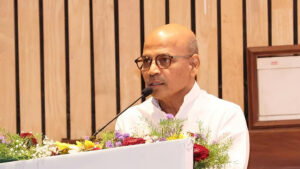In a significant decision, the Supreme Court of India has denied bail to three individuals implicated in the Godhra train burning case, terming the incident “very serious.” The case, which dates back to the year 2002, has been a subject of prolonged legal proceedings and remains a symbol of communal tensions in the country.
The three individuals had filed for bail, citing various grounds including the duration of their incarceration and their conduct during the trial. However, the Supreme Court bench upheld the lower court’s decision to deny bail, emphasizing the gravity of the incident and its implications.
The Godhra train burning case refers to the horrific incident that took place on February 27, 2002, when a train compartment carrying Hindu pilgrims was set ablaze near the Godhra railway station in Gujarat. The incident led to the deaths of 59 people and sparked widespread communal violence in Gujarat and other parts of the country.
The incident has remained a topic of intense debate and scrutiny, with legal proceedings continuing for several years. The Supreme Court’s decision to deny bail to the three accused reflects the court’s stance on the severity of the crime and its commitment to ensuring a fair trial and justice for the victims.
Legal experts have noted that the Supreme Court’s ruling underscores the challenges in cases involving communal violence and the necessity of conducting thorough investigations and fair trials. The decision also highlights the judicial system’s responsibility to uphold the principles of justice, irrespective of the complexities and sensitivities surrounding the case.
The denial of bail comes as a reminder of the need for meticulous handling of cases related to communal tensions and violence. The Supreme Court’s stance on the matter sends a strong signal about its commitment to ensuring that justice is served and that those responsible for such serious incidents are held accountable.
As the legal proceedings in the Godhra train burning case continue, the Supreme Court’s decision to deny bail to the three accused reaffirms the significance of upholding the principles of justice, equity, and fairness in the Indian legal system.










